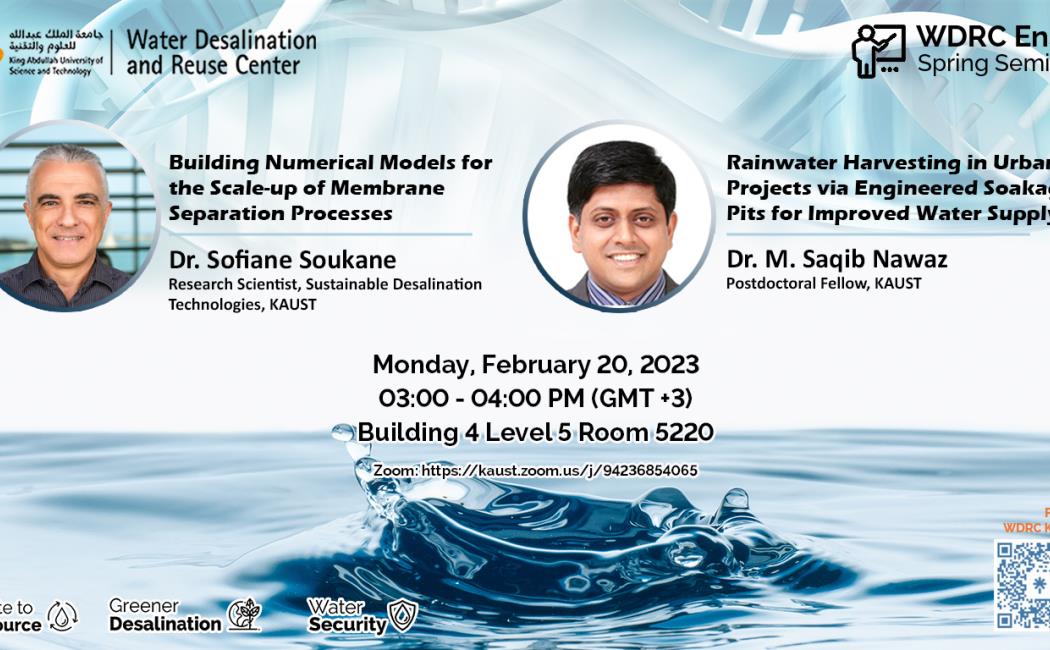


![20Feb_Sofiane and Saqib_Horizontal[42]](/images/default-source/events/ense-seminar-series/20feb_sofiane-and-saqib_horizontal-42.jpg?sfvrsn=b00a6057_2)
Venue: Building 4, level 5, 5220
Abstract:
The scale-up of a chemical process consists of translating a laboratory prototype to a larger scale. This procedure is performed with the purpose of increasing the system productivity, which in the case of membrane separation processes such as membrane distillation or forward osmosis, is represented by the quantities of valuable fluids (water) or compounds (minerals) transferred through or retained by the membranes. Therefore, the scale-up procedure is associated with the size of the membrane active area offered by the system. Ideally, an increase in the membrane area would lead to the same increase in the ratio of productivity. Unfortunately, this linear relationship is seldom observed as strong non-linearity prevails in real life. Although separation occurs at the membrane interface, momentum, heat, and mass transfer, which strongly depend on equipment design, can limit the system's performance. At this stage, modeling and simulation are key to assessing how the system behaves at a larger scale without recourse to experimental trial and error. Recently developed models, which couple momentum, heat, and mass transfer to species transport across membranes, could help identify the required adjustments to sustain productivity by virtually increasing the equipment's size.
About the speaker:
Dr. Sofiane Soukane is a research scientist at WDRC, working in the sustainable desalination technologies group. He received a Ph.D. (1998) and MSc (1994) in process engineering from Institut National Polytechnique de Toulouse, France. He worked as a senior research fellow at Ecole Polytechnique de Montreal-Canada, where he served as the head of the modeling and simulation group of the high-performance composites research chair. Prior to that, he spent two years as a post-doctoral research associate at the chemical engineering department of Rensselaer Polytechnic Institute New York, focusing on moving boundary problems for feature scale simulation. He also worked in industry at Applied Materials Inc. Core Technologies group in Santa Clara, California, as an R&D engineer, where he contributed to the design of deposition and etch process equipment. He later joined the Advanced Technologies Research Center in Algiers, Algeria, as a process integration manager of semiconductor processing facilities. He then held an academic position as an Associate Professor at the National School of Marine Science and Coastal Management in Algiers. Part of his research focuses on the development of scale-up procedures for membrane separation processes using numerical modeling.
Abstract:
Due to global warming and climate change, rain patterns are changing and getting aggressive in some parts of the world. We observed urban flooding in Jeddah after the recent rains. This rainwater can be harvested through engineered soakage pits for groundwater recharge and can be used as a future source of water supply. Understand the theory and design of soakage pits in this talk.
About the speaker:
Dr. M. Saqib Nawaz holds a Ph.D. degree in Environmental Engineering. He has over 12 years of experience working in the fields of wet utilities design and water and wastewater treatment. Currently, he is a post-doctoral fellow at Water Desalination and Reuse Center, KAUST.